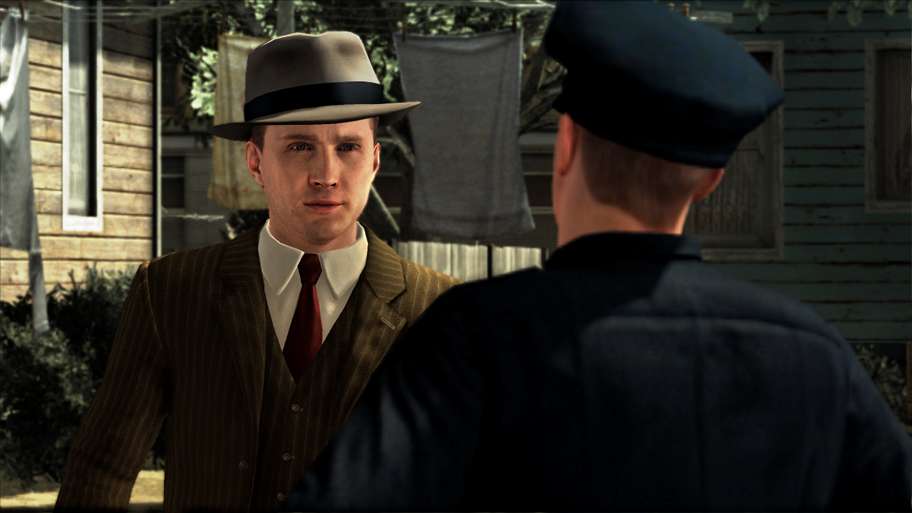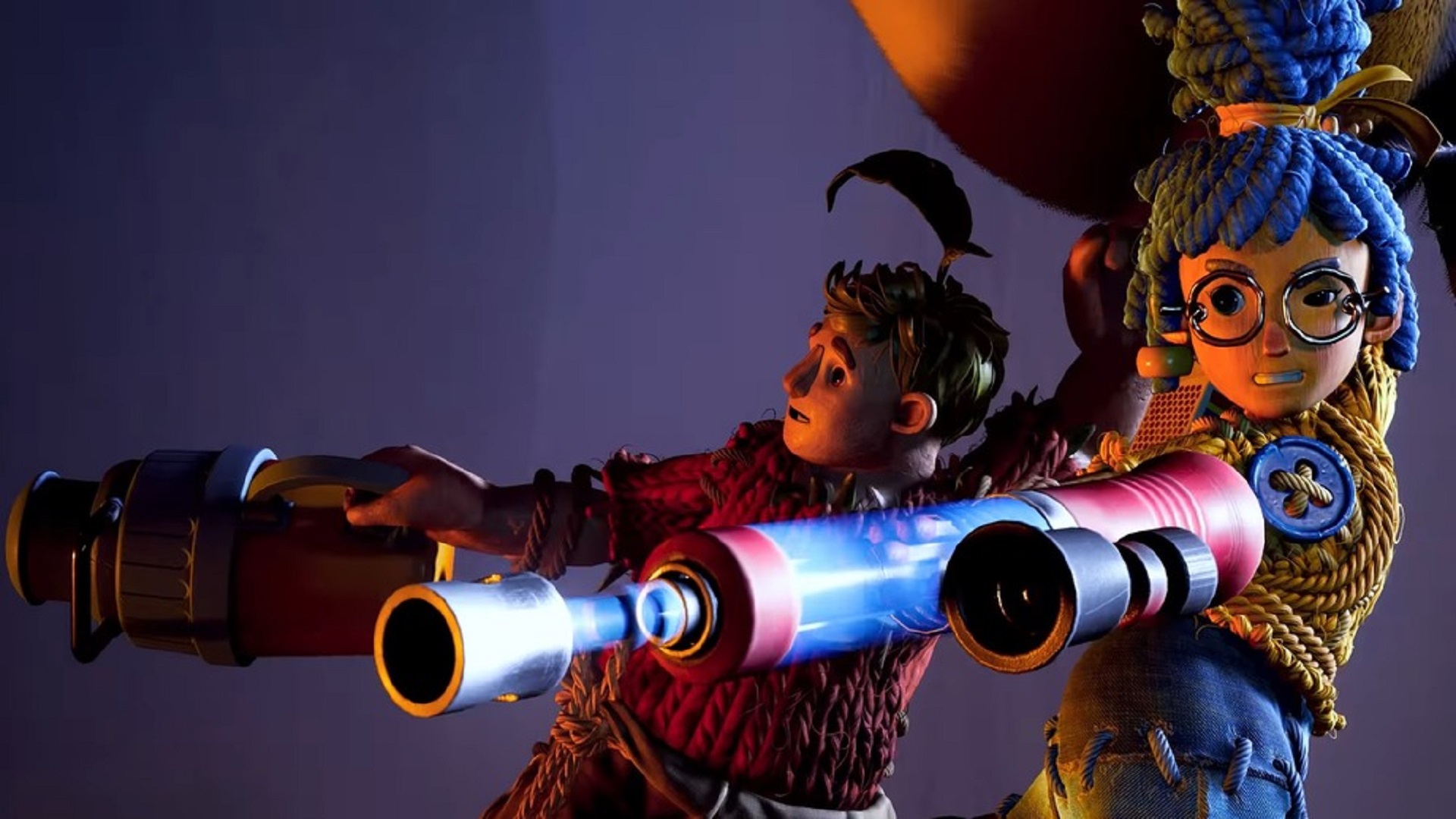Some of the best story-heavy video games provide thought-provoking conclusions. We’ve completed our mission, but the outcome isn’t always rosy and bright. Sometimes, as the games on this rundown demonstrate, the ending provides a gloomy outlook for the future. We’ve won, but we feel like we’ve lost.
There are, of course, major spoilers ahead for each of the games featured in this rundown, so skip a section if you want to discover the game’s conclusion for yourself.
Red Dead Redemption 2
Rockstar’s wild west opus has four endings (three as Arthur Morgan, one as John Marston) but owing to your inevitable attachment to Morgan during the 50-hour-or-so campaign none are especially uplifting. The ‘good’ – in inverted commas – ending sees Morgan assisting Marston in a shootout against Dutch’s gang and the Pinkertons. High honour: Arthur succumbs to tuberculosis watching the sunrise; low: he takes a bullet to the head. Abandoning Marston for the bad ending sees Morgan lose a knife fight to Micah Bell. Each ending elevates an already engrossing story, but it sure does suck for Arthur to lose his life no matter what you choose.
Ghost of Tsushima
Jin’s defence of Tsushima from Mongol invaders culminates in the ultimate moral quandary, and players are divided on which direction is most canonical. On the one hand, killing Lord Shimura – his surrogate father – is most honourable for Shimura but distressing for Jin. Sparing his uncle dishonours the family, spitting in the face of samurai code. Opt for the former to poetically symbolise Jin’s full transition to ghost, severing any remaining connection to the samurai code he once adhered, no matter how much Shimura demanded it. Either way, Jin is left a lone wolf, his heroism reduced to villainy in the eyes of the Shogun.
Shadow of the Colossus
Yeah, you’ve slain sixteen colossi to revitalise your lady love Mono, but at what cost? The scheming Dormin doesn’t reveal their identity as annexed demon until the game’s very end, but by that time it’s too late, the damage is done. Shadow of the Colossus has a way of making you feel sorry for the fierce-now-slain colossi, even though your actions as Wander were in good faith; to be fair to Dormin too, they do uphold their end of the bargain in reviving Mono. Agro the horse survives too, at least.
Limbo
Enigmatic Limbo, the odyssey of a boy in search of his sister. This silent, dark ambient masterwork is open to interpretation, but the presiding theory is that the boy is dead and that the game is an allegorical retelling of his life right up until the moment he checks out. With all the gravitational flailing during the game’s final moments it seems the boy died in a car crash, but the gut punch here is that he clearly doesn’t know he’s already dead. Maybe his sister was never in Limbo? Or maybe she died in the crash too? The two never clap eyes on each other at the end, despite the sister sensing the boy’s presence. Tragic.
Braid
An ending which re-contextualises the narrative, during Braid we play as Tim during his attempts to rescue a princess from an evil monster, although maybe Tim is the monster all along? This blatant switcheroo is not as trivial as it first appears. Tim, as revealed via in-game texts, was instrumental in The Manhattan Project, with the princess being a manifestation of his guilt surrounding his part in the atom bomb’s development. The flip-reverse finale whereby we believe we’re rescuing the princess only for time to switch backwards to reveal she’s running away cements Tim’s legacy as wrongdoer. It’s a beautiful, bittersweet full circle.
SOMA
Say what you will about SOMA, but it’s got one of the heaviest existential crises in all video games. Uploading consciousness to digital formats is conceptually and morally nebulous; SOMA asks just what it is to be human. Is it someone’s thoughts, personality, memories? If so, is it the same person if you extract these thoughts and implant them in a carbon-copied body? Experiencing this first-hand through the eyes of Simon, we feel a sense of triumph as his fourth iteration is deposited into the ARK before its voyage to interstellar sanctuary, but our eyes stay with Simon3 as he’s left behind in dark, subaquatic abyss, abandoned and alone.
The Last of Us

The pinnacle of moral middle ground, you play the majority of The Last of Us as grief-stricken smuggler Joel, and you’ll endear yourself to him principally due to the tragic loss of his daughter some two decades prior; a heinous tragedy, with unshakeable grief hanging over him like a dark cloud. Ellie is his chance at finally conquering his sorrow, of blowing this dark cloud away, so his actions – as abominable as they are for the rest of humanity – are explainable. There’s no denying his selfishness though; The Last of Us has us believe we play the good guy, but our nobility is shattered at the very end.
Brothers: A Tale of Two Sons
A game about working together to overcome insurmountable challenges, little brother Naiee heavily relies on older sibling Naia, until he can’t. Ingeniously exemplified via in-game controls, the loss of thumb-stick functionality for the older brother symbolising the very real loss Naiee experiences when Naia is no longer his guiding light. Together with Naiee, we’re forced to adapt, to learn strength, and live without help. It’s a bittersweet ending to an emotionally charged story.
A Way Out
Two endings are possible in dual-protagonist prison break drama A Way Out, yet the deaths of seasoned criminal Leo or undercover agent Vincent don’t bring any significant gratification to the player. Canonically, Leo killing Vincent makes more sense. After all, he’s the real criminal here despite his final actions motivated by betrayal than bloodlust. Vincent killing Leo is the easier pill to swallow but implies a failure to morally resolve his sting operation. Both share kinship, both have families outside of the drama, there’re no winners at the end of A Way Out.
L.A. Noire

Despite L.A. Noire adhering to the tragic finale trope of film noir, numerous players find the game’s ending dissatisfactory. Centring on Cole Phelps’ humdrum death at game’s end, Phelps’ quest for redemption ending on a damp squib, with little recognition for the man he is, for his uneventful funeral, it’s easy to see this resolution as a rushed job by the developers. Thing is, Phelps spent his life seeking redemption for his failures as a soldier, police officer, and husband. The fact he was on the cusp of reclamation before his untimely death is plain tragic.
Metal Gear Solid V: The Phantom Pain
Sure, there are endless clues throughout MGSV: The Phantom Pain that Venom Snake isn’t in fact the real Big Boss, but The Medic whom Zero imparts skills, wisdom, and memories of Big Boss to act as decoy. By the end of the game, it feels like we’ve been playing as a lie. We eliminate the bad guys, but do we feel fulfilled? Aren’t we left with a feeling of emptiness – a Phantom Pain?
Inside
Monochromatic side-scroller Inside plunges a boy into a dangerous world, intriguing, otherworldly, hostile, and mysterious. He’s forging towards something, but that something is totally unexpected. Is the globule mass calling him? That point is up for interpretation, but once he’s enveloped, and the hulking mass escapes from the tight-knit facility all hell breaks loose. We escape, but to where? Was this whole thing orchestrated? One thing worth mentioning: when we reach the grey shoreline come the game’s very end, there’s a sense of tranquility. Of peace. Inside’s a strange one.
It Takes Two

Struggling couple Cody and May are forced to cooperate in It Takes Two, overcoming obstacles together in miniature toy-like form initially as a means to reach their daughter back in their human form, but then growing as a way to save their marriage. However, together they must torture and kill a stuffed elephant toy; a toy that, yes, whilst stuffed and not real is begging for mercy. It’s challenging, disturbing, quease-inducing, but come games end the trio of husband, wife, and daughter have a new perspective on their life and relationship. It’s just that getting there takes monumental challenge – kind of like true life.
Telltale’s The Walking Dead
Yes, an obvious pick for this feature. There’re question marks over saviour Lee’s fate – does he die in both the game’s possible endings? Sure, he’s bitten, so in one ending you shoot him out of sympathy, but in the other you can spare him. The tragedy here is that in saving your bullet you condemn him to becoming a walker. You’re left broken either way, a true example of survival but at what cost.
Gears of War 3
The ending of Gears of War 3 centers on sacrifice. It’s revealed player-character Marcus Fenix’s father Adam infects himself with Lambent cells in order to test his Locust eradicating machine. The machine works, sweeping a shockwave across Sera and completing the mission for Marcus and his team. They’ve won, but of course Marcus has lost his father, and perhaps greater, he mournfully ponders the remnants of humanity – was it all worth saving?














